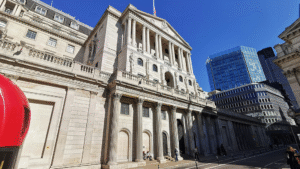
Walmart Stock Outperforms Market Despite Losses on the Day

Walmart Inc. stock (WMT) outperformed the market on Friday, falling 1.25% to $158.76, while the S&P 500 Index (SPX) fell 1.26% to 4,224.16. This was Walmart’s second consecutive day of losses, but its stock still outperformed the broader market.
Walmart’s stock outperformance may be due to several factors, including its strong fundamentals and defensive nature. Walmart is one of the largest retailers in the world, with a strong track record of profitability. The company is also well-positioned to benefit from rising inflation, as consumers are likelier to shop at discount retailers during economic hardship.
In addition, Walmart’s stock may benefit from a rotation into defensive sectors. Defensive sectors tend to perform well in times of economic uncertainty. Walmart is considered a defensive stock because it sells essential goods that consumers need regardless of the economic climate.
Walmart’s stock outperformance on Friday is a positive sign for the company and its investors. The company’s strong fundamentals and defensive nature make it a good investment in both good times and bad.
Walmart’s stock outperformance on Friday is noteworthy, given that the broader market was down sharply. This suggests that investors view Walmart as a safe haven in the current uncertain economic environment.
Walmart’s strong fundamentals are also supporting its stock price. The company has a strong track record of profitability and is well-positioned to benefit from rising inflation.
In addition, Walmart’s stock may benefit from a rotation into defensive sectors. Defensive sectors are those that perform well in times of economic uncertainty. Walmart is considered a defensive stock because it sells essential goods that consumers need regardless of the economic climate.
Walmart’s stock outperformance on Friday is a positive sign for the company and its investors. The company’s strong fundamentals, defensive nature, and potential to benefit from rising inflation make it a good investment in the current economic environment.

Budget Crisis Threatens the Ukraine Special Tribunal Initiative
Budget shortfalls and donor hesitation are putting the Ukraine special tribunal initiative at risk, raising fears that efforts to prosecute Russian aggression could stall.

European Leaders Skip Latin American Summit Amid Trump’s Shadow
Top European leaders skip Latin American summit under Trump’s shadow, leaving the EU-CELAC talks in Colombia with minimal attendance

UK Government to Adjust Planning Overhaul to Boost Growth
he government is refining the UK planning overhaul to stimulate growth by curbing legal delays, limiting council vetoes

Sterling Falls as Slower Wage Growth Fuels Bank of England
The pound weakened after UK data showed slower wage growth, raising expectations of an early Bank of England rate cut



















